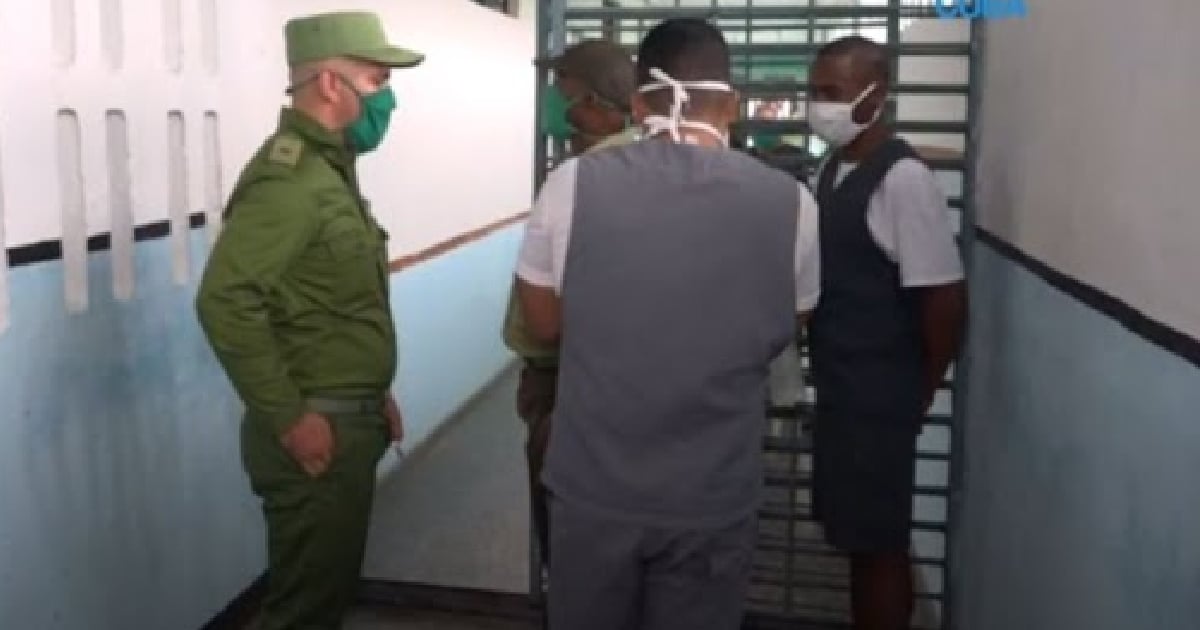The United Nations is set to issue a strong condemnation in September against the forced labor imposed on political prisoners in Cuba, as highlighted in its recent study on Contemporary Forms of Slavery. This statement is backed by the NGO Prisoners Defenders, whose detailed report on the conditions in Cuban prisons has been adopted by Tomoya Obokata, the UN Special Rapporteur.
The document expresses serious concern over laws and regulations in Cuba that permit mandatory labor as retaliation for expressing political opinions or participating in strikes. The United Nations points out that this practice is a severe violation of human rights and has urged the Cuban government to review its repressive policies.
The Prisoners Defenders report, which served as the basis for the UN's condemnation, offers a chilling portrait of the conditions faced by political prisoners on the island. According to the report, the production of marabú charcoal and cutting sugarcane during the harvest season are two of the most common and grueling tasks forced upon these inmates. These jobs, often undertaken without proper equipment, expose prisoners to inhumane and dangerous conditions.
A particularly harrowing testimony comes from Walnier Luis Aguilar Rivera, whose father detailed how prisoners are forced to cut marabú logs with their bare hands, lacking proper tools, which results in severe injuries and blisters. "They are working like slaves," he denounced, highlighting the brutality faced by political prisoners, as reported by the EFE news agency.
The conditions are equally deplorable for those in the sugarcane cutting brigades, who reportedly lack gloves, boots, and appropriate tools. This inadequate equipment not only makes the task more difficult but also increases the risk of injuries, demonstrating a blatant disregard for the lives and dignity of these workers.
As reaffirmed on the social media platform X, Prisoners Defenders has also raised alarms about the involvement of minors in these forced labor activities, with workdays exceeding nine hours, insufficient food, and the absence of medical check-ups. Additionally, the organization has denounced that the charcoal produced under these conditions in Cuba is sold in Europe, making consumers unwitting accomplices to these inhumane practices.
The report from the UN Special Rapporteur is expected to increase international pressure on the Cuban government to end these human rights violations and to implement concrete measures to prevent the export of products obtained through forced labor.
On the third anniversary of the historic July 11 protests, the regime reported a total of 1,731 political prisoners since that date, alongside the ongoing misery, repression, fear among citizens, persecution of the press, the monthly exodus of thousands, and the pain suffered by families and prisoners. According to Prisoners Defenders, the current figure stood at 1,119 as of last July, including 30 minors (one female among them), 119 women (counting minors and two trans individuals), and 324 with severe medical conditions.
Understanding the UN's Condemnation of Forced Labor in Cuba
The following questions and answers provide further insights into the forced labor conditions faced by political prisoners in Cuba and the international response.
What prompted the UN to condemn forced labor in Cuba?
The UN's condemnation was prompted by a detailed report from the NGO Prisoners Defenders, which highlighted the severe conditions and human rights violations faced by political prisoners engaged in forced labor.
What types of forced labor are political prisoners subjected to in Cuba?
Political prisoners in Cuba are commonly forced to produce marabú charcoal and cut sugarcane during the harvest season, often without proper equipment, exposing them to dangerous and inhumane conditions.
How has the international community reacted to these revelations?
The international community, led by the UN's condemnation, is expected to increase pressure on the Cuban government to end these human rights abuses and adopt measures to prevent the export of products made through forced labor.
What actions has Prisoners Defenders taken to address these issues?
Prisoners Defenders has conducted thorough investigations and published reports detailing the conditions of political prisoners in Cuba. They have also raised awareness on social media and highlighted the involvement of minors in forced labor.
